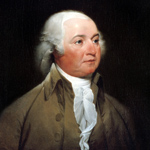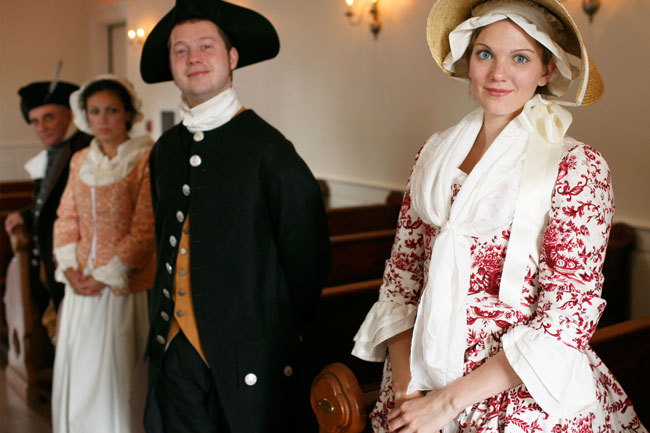John Adams perhaps best embodies the persona of the eighteenth century enlightened republican. Born to a simple farming family from Massachusetts, he devoted his attention to a variety of tasks, always seeking to improve himself. His ideas, formulated only after years of continuous study and experience as a public servant endeared him to the principles of liberty and equality. He proved indispensable in the cause of independence, and afterwards in the formation of the United States government. By the end of his tenure as a public servant he had proved indispensable in separating the thirteen colonies from the yoke of Great Britain, steered the country toward a government founded on checks and balance, established the navy as the first line of defense, kept the United States out of Europe’s devastating wars and created the conditions salubrious to economic growth. Indeed, John Adams’ importance as a political figure in the early years of the republic cannot be understated.
John Adams Accomplishments
Politician, Husband, Father & Friend
His contemporaries would describe him as honest, straightforward and plainspoken. As a delegate, diplomat, politician, husband, father and friend, he was known to share his opinions with anyone and everyone, especially if he disagreed with their point of view—he was ever certain that his opinion was always correct. In a letter to Abigail Adams, John once remarked “Thanks to God he gave me stubbornness when I know I am right.” His obstinacy offended some of his colleagues, but it did much to secure a separation from the British government, and later, to keep the fledgling United States out of a war with France and Britain. John Adams was indispensable to the cause of American independence, and without his leadership, the republican experiment in America might have failed.
A Turbulent Era of Political Upheavals
His uncompromising values and his ability to navigate the course of moderation during a turbulent era of political upheavals should be venerated. Adams supported independence, and even revolution against the British Empire, but he abhorred the mobs that democracy created. The gathering of individuals with the intention of harm on property, and life was the direction that Adams wished to avoid. Such mobs were ubiquitous in the Boston he called home, and the belligerency of these crowds, as Adams would attest, summoned the tragic outcome of the Boston Massacre. As Adams would later write in Novanglus, mobs that espoused egalitarian virtues could just as well create the conditions conducive to a tyrannical government. Popular leaders, Adams decried, could rally people behind the cause of liberty and natural rights to redress a grievance, “but [these causes] have been much oftener perverted to the worst of purposes.”
The Fight For Independence
While John Adams would go on to serve as the second President of the United States in 1797, his greatest contribution came in the form of his ability to rally Americans around the cause of independence. At the Second Continental Congress in 1776, Adams urged delegates to formally declare war against the British government. In the years that followed, Adams travelled abroad to secure an alliance with France, and a loan from the Dutch Republic which helped the nascent United States establish credit—both of which were crucial to the success of the American Revolution. As the second President of the United States, Adams was true to his principles that guided him during the years of the War of Independence. He believed in the rule of law, that the masses were not to be trusted, and most importantly, that the new government should be divided into three branches which would check, and balance the others.
A Crossroads Between Federalists & Democratic-Republicans
His distrust of the masses, or direct democracy was in line with his views from the revolutionary era. For this reason, he believed in a strong executive branch that would stand above party politics. Adams was decidedly against factionalism, but newspapers ridiculed him as a relic from a past era in a country that was dividing along partisan lines. For his part, Adams believed in a strong central government, but he would later stand at a crossroads between the Federalists and Democratic-Republicans. Adams was skeptical of Federalists like Alexander Hamilton who believed that a standing army should be formed, and that war with revolutionary France should be pursued—Adams knew that such a course could be disastrous to the fledgling United States. On the other hand, Adams was also in disagreement with his old friend Thomas Jefferson who, as a Democratic-Republican believed in the decentralization of government—leaving more power in the hands of the states. By isolating himself from his Federalist allies, and by being at an impasse with the politics of the Democratic-Republicans, there is no doubt that Adams hurt his chances in the presidential election of 1800.




